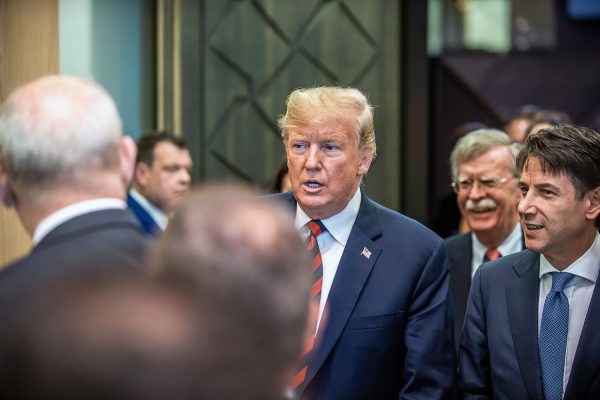
I’m glad Donald Trump’s shameful behavior in Helsinki, coming on the heels of his ally-bashing in Brussels and the United Kingdom, is finally waking up even conservatives to the fact that we have a Putin apologist in the White House.
When former intelligence chiefs start to call the president a traitor for accepting Vladimir Putin’s denials of waging information warfare on the United States, we should perhaps ask ourselves if Jonathan Chait didn’t have a point when he argued in New York magazine that the Trump-Russia scandal could be worse than we thought?
For us in Europe, the why matters less than the what. Whatever Trump’s motives, we must deal with an American president who is determined to sabotage the Atlantic alliance and establish an accord with Putin.
The question is, how?
What should we do?
After Trump’s inauguration, I proposed four ways in which Europe could resist him:
- Circling the wagons: Resolving Brexit and the Greek debt crisis quickly and amicably.
- Doubling deterrence: Enhancing military cooperation in Europe, outside NATO. If Trump won’t fight for Estonia, Putin must know that Europeans will.
- Upholding liberal norms: Defending free trade, meeting the Paris climate goals, staying in the Iran nuclear deal and continuing to arbitrate disputes through international institutions like the WTO.
- Showing that soft power isn’t soft: The EU has inspired democratization in Eastern Europe and regional integration around the world. Standing up for what’s right pays off.
How are we doing?
In all four areas, progress has been mixed but encouraging:
- Brexit is a mess, largely of Britain’s own making, but the Greeks have been let off the hook.
- European countries are serious about defense union, but it is doubtful they can manage without the United States in the short term.
- The EU has signed new trade agreements with Mexico and Japan, but the new Putin- and Trump-friendly government is Italy is raising doubts about a pact with Canada while European efforts to salvage the Iran deal appear doomed.
- The Putin and Trump model is gaining adherents of its own: a “nationalist international” that hopes to subvert Europe from within.
What more can we do?
- Ideally, the British would change their minds about Brexit, but that is probably a lost cause.
- Raising defense spending can’t hurt, but it’s not the most important thing. (Read here why NATO’s 2-percent pledge is a bit of a distraction.) Collectively, Europe outspends Russia on defense four-to-one. The priority should things like pooling defense procurement, enhancing troop movement in Europe (a “military Schengen”) and forming multinational battlegroups and rapid-reaction forces — all of which is supposed to happen, but which needs to happen fast.
- Italy needs to be persuaded to stay in the Canada trade agreement and European countries need to find ways to continue to engage with Iran even if the nuclear deal falls apart.
- Mainstream politicians need to speak out for European integration and European values. Emmanuel Macron’s election in France was a much-needed victory. Formerly Euroskeptic rightwingers, like the Netherlands’ Mark Rutte, now defend the EU. Brexit has actually hurt the nativist cause by demonstrating that populist agitation is not without consequences.
